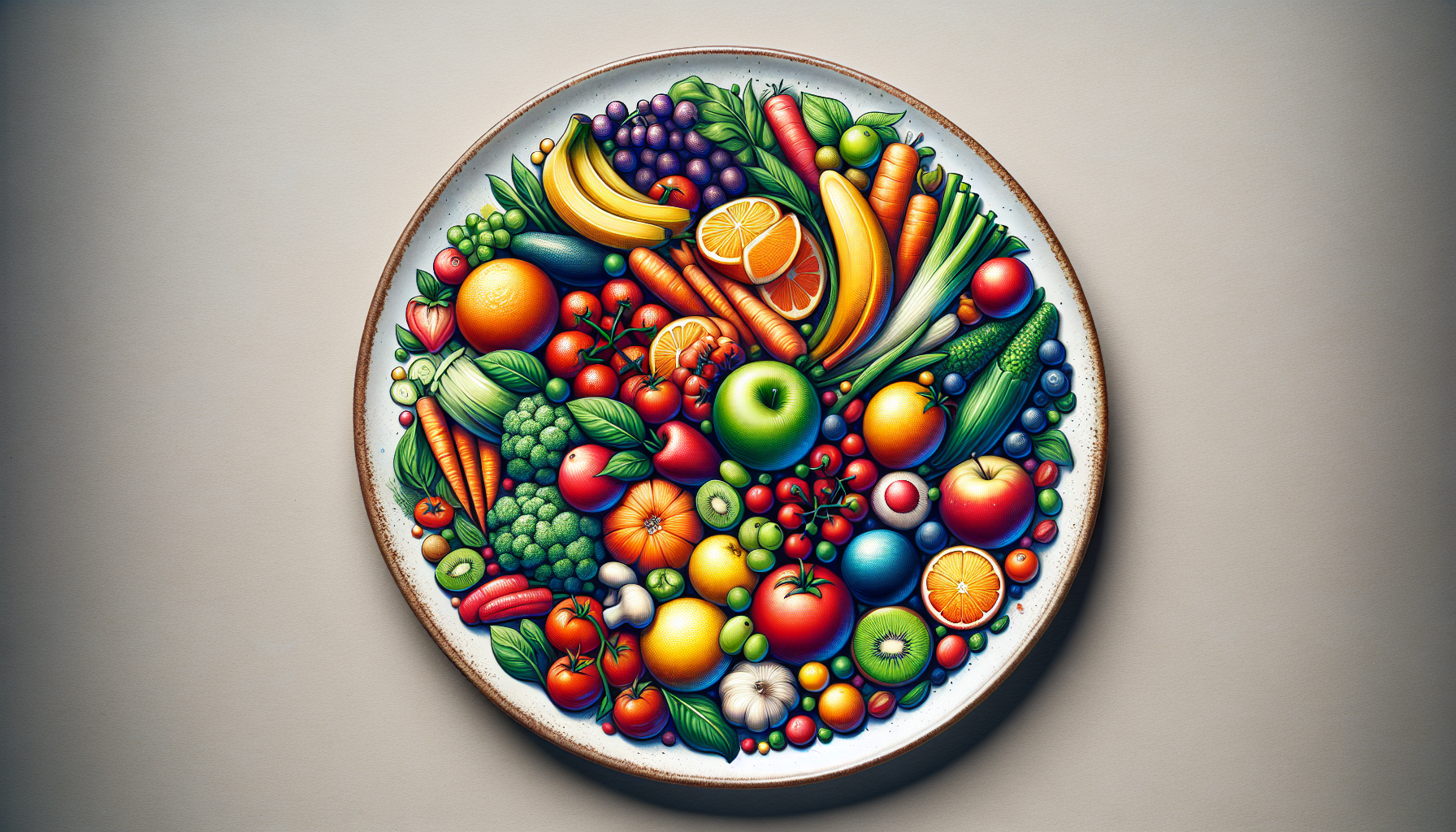Losing weight without dieting? Sounds too good to be true, right? Well, prepare to be pleasantly surprised! In this article, we’re going to reveal the secret to achieving weight loss without having to follow a strict diet. Say goodbye to endless calorie counting and restrictive meal plans, and say hello to a sustainable and enjoyable approach to shedding those extra pounds. We’ll explore simple yet effective strategies that can help you reach your weight loss goals without feeling deprived or constantly hungry. However, before you embark on any lifestyle changes, remember to consult a health professional to ensure they are suitable for your specific needs and circumstances. Let’s uncover the secret to a no-diet weight loss together!
Discover the Ultimate Weight Loss Secrets Here!
Understanding Weight Loss
Losing weight can be a challenging journey, but with the right knowledge and approach, it can also be an empowering and fulfilling experience. Understanding the basic principles of weight loss is the first step towards achieving your goals.
Calories and Weight Loss
When it comes to weight loss, the concept of calories plays a crucial role. Calories are units of energy that we obtain from the food we eat. Consuming more calories than your body needs leads to weight gain, while consuming fewer calories results in weight loss. It’s important to find a balance and create a calorie deficit in a healthy and sustainable manner.
Metabolism and Weight Loss
Your metabolism, or the rate at which your body burns calories, also plays a role in weight loss. While some individuals naturally have faster metabolisms, there are ways to boost your metabolism through lifestyle choices. Eating smaller, frequent meals throughout the day, increasing physical activity, and incorporating strength training into your routine can all help elevate your metabolism and enhance weight loss efforts.
Lifestyle and Weight Loss
Beyond calories and metabolism, your overall lifestyle plays a significant role in achieving and sustaining weight loss. Making healthier choices and adopting a more active lifestyle can greatly impact your weight loss journey. It’s not just about following a strict diet or exercising intensely for a short period of time; it’s about incorporating healthy habits into your everyday life.
Healthy Eating Habits
When it comes to losing weight and improving your overall health, healthy eating habits are of paramount importance. Here are some key factors to consider:
Meal Planning
Planning your meals in advance is an effective strategy for weight loss. By preparing your meals ahead of time, you can make healthier choices, control portion sizes, and eliminate the need for unhealthy last-minute food choices. It also helps you stay organized and saves time in the kitchen.
Portion Control
Portion control is a vital aspect of healthy eating. Learning to recognize appropriate portion sizes and listening to your body’s hunger and fullness cues can help you maintain a balanced calorie intake. It’s important to remember that you can still enjoy your favorite foods, but in moderation.
Mindful Eating
Practicing mindful eating involves being fully present and aware of your eating experience. It means paying attention to the taste, texture, and smell of your food, as well as your body’s hunger and fullness signals. By eating mindfully, you can develop a healthier relationship with food, prevent overeating, and make better food choices.
Avoiding Processed Foods
Processed foods are often high in calories, unhealthy fats, sugar, and sodium. These can hinder your weight loss progress and have a negative impact on your overall health. Opting for whole, minimally processed foods is a healthier choice as they provide essential nutrients and are generally lower in calories.
Eating More Whole Foods
Incorporating more whole foods, such as fruits, vegetables, whole grains, lean proteins, and healthy fats, into your diet can greatly support your weight loss journey. Whole foods are typically nutrient-dense and lower in calories, making them an excellent choice for sustainable weight loss.

Click Here for Proven Fat-Burning Strategies!
Exercise for Weight Loss
Exercise is an essential component of any successful weight loss plan. It not only helps burn calories but also improves overall fitness and promotes a healthy body composition. Here are some types of exercises that can aid in weight loss:
Cardiovascular Exercise
Cardiovascular exercises such as running, cycling, swimming, and dancing are great for burning calories and boosting your metabolism. Aim for at least 150 minutes of moderate-intensity cardio or 75 minutes of vigorous-intensity cardio per week to achieve optimal weight loss results.
Strength Training
Incorporating strength training into your exercise routine is crucial for maintaining and building lean muscle mass. Muscles burn more calories than fat, even at rest. By increasing your muscle mass, you can boost your metabolism and enhance weight loss.
Interval Training
Interval training involves alternating periods of high-intensity exercise with periods of low-intensity recovery. This type of workout not only helps burn calories during the workout but also triggers the “afterburn effect,” where your body continues to burn calories at an elevated rate for hours after the workout.
Incorporating Physical Activity into Daily Routine
Aside from structured exercise sessions, finding ways to be more active throughout the day can greatly contribute to weight loss. Taking the stairs instead of the elevator, going for a walk during your lunch break, or doing household chores can all add up and increase your overall calorie expenditure.
Importance of Sleep and Stress Management
Sleep and stress management might not be the first things that come to mind when you think about weight loss, but they are actually crucial factors that can greatly impact your progress. Here’s why:
Sleep and Weight Loss
Getting adequate sleep is essential for weight management. Sleep deprivation can disrupt your hormones, specifically those responsible for appetite regulation. This can lead to increased cravings for high-calorie foods and a greater likelihood of overeating. Aim for 7 to 9 hours of quality sleep each night to support your weight loss efforts.
Stress and Weight Loss
Chronic stress can lead to emotional eating, poor food choices, and increased cravings for comfort foods. It can also elevate cortisol levels, a hormone that promotes fat storage, particularly in the abdominal area. Implementing stress management techniques such as deep breathing, meditation, or engaging in hobbies can help reduce stress levels and support weight loss.
Strategies for Better Sleep and Stress Management
Establishing a consistent sleep routine, creating a relaxing bedtime routine, and creating a calm and comfortable sleep environment can greatly improve sleep quality. To manage stress, incorporating activities that you enjoy, practicing mindfulness, and seeking support from friends, family, or professionals can be beneficial.

Unlock Your Path to a Healthier You!
Hydration and Weight Loss
Proper hydration is often overlooked but can have a significant impact on your weight loss journey. Staying hydrated offers numerous benefits:
Benefits of Drinking Water
Drinking water is essential for maintaining overall health. It helps regulate body temperature, supports digestion, aids in nutrient absorption, lubricates joints, and flushes out toxins. Drinking an adequate amount of water can also help curb your appetite and prevent overeating.
Drinking Water for Weight Loss
Making water your beverage of choice can support weight loss in several ways. Firstly, it has zero calories, unlike sugary beverages. By replacing high-calorie drinks with water, you can reduce your overall calorie intake. Secondly, drinking water before a meal can help you feel fuller and consume fewer calories during the meal. Aim to drink at least 8 cups (64 ounces) of water per day.
Hydration Tips and Tricks
If you struggle to drink enough water, try incorporating these tips and tricks into your routine: carry a reusable water bottle to stay hydrated on the go, set reminders to drink water throughout the day, infuse your water with fruits or herbs for added flavor, and drink a glass of water before and after each meal.
Maintaining a Healthy Lifestyle
Achieving weight loss is one thing, but maintaining your progress and making it a lifelong habit is equally important. Here’s how you can maintain a healthy lifestyle:
Consistency and Commitment
Consistency is key when it comes to maintaining a healthy lifestyle and weight loss. Make small, sustainable changes that you can stick to in the long run. Remember, it’s not about perfection but progress.
Support System
Having a support system can greatly enhance your weight loss journey. Surround yourself with like-minded individuals who share similar goals. This can be friends, family, or joining a weight loss support group. They can provide encouragement, accountability, and guidance when things get challenging.
Celebrating Non-Scale Victories
While weight loss is an important goal, it’s essential to celebrate non-scale victories along the way. Non-scale victories include increased energy levels, improved sleep quality, enhanced mood, and fitting into smaller clothing sizes. Recognizing and celebrating these achievements can boost your motivation and keep you on track.
Healthy Habits for Life
Remember, weight loss isn’t just a temporary fix; it’s about creating healthy habits that you can sustain for life. Focus on nourishing your body with nutrient-dense foods, staying active, managing stress, and prioritizing self-care. By making these habits a part of your everyday life, you can maintain a healthy weight and overall well-being.

Recognizing Emotional Eating
Emotional eating is a common struggle for many individuals. It involves turning to food for comfort or as a coping mechanism during times of stress, sadness, or boredom. Here are some strategies for recognizing and addressing emotional eating:
Emotional Hunger vs. Physical Hunger
Learning to distinguish between emotional hunger and physical hunger is crucial for addressing emotional eating. Emotional hunger often comes on suddenly and is accompanied by specific cravings for comfort foods. Physical hunger, on the other hand, develops gradually and can be satisfied with a variety of nutritious foods.
Identifying Trigger Foods
Certain foods may act as triggers for emotional eating. These are often highly palatable, processed foods that provide temporary comfort but do not fulfill your nutritional needs. Identifying your trigger foods can help you develop strategies to avoid or replace them with healthier alternatives.
Alternative Coping Mechanisms
Finding alternative coping mechanisms to deal with emotions instead of turning to food is essential for breaking the cycle of emotional eating. Engaging in activities such as talking to a friend, practicing relaxation techniques, journaling, or engaging in a hobby can help divert your attention from food and provide healthier outlets for your emotions.
Setting Realistic Goals
Setting realistic goals is crucial for a successful weight loss journey. Here’s an effective approach for goal setting:
SMART Goal Setting
SMART goal setting is a helpful framework for creating specific, measurable, attainable, relevant, and time-bound goals. For example, instead of setting a vague goal like “I want to lose weight,” set a SMART goal like “I want to lose 10 pounds in the next three months by exercising three times a week and following a balanced meal plan.”
Tracking Progress
Tracking your progress is key to staying motivated and accountable. Keep a food diary to record what you eat, track your workouts, and take measurements or photos to document your physical changes. Regularly reviewing your progress can help you identify what’s working and make adjustments if needed.

Incorporating Mindfulness
Incorporating mindfulness into your weight loss journey can have profound effects on your overall well-being. Here’s how you can practice mindfulness:
Mindful Eating
Mindful eating involves paying full attention to the experience of eating, without distractions. Slow down, savor each bite, and truly appreciate the flavors and textures of your food. This can help you tune in to your body’s hunger and fullness cues, prevent overeating, and promote a healthier relationship with food.
Mindful Exercise
Approach exercise with mindfulness by being fully present and engaged in the activity. Pay attention to how your body moves, the sensations you experience, and the emotions that arise during and after your workouts. This can help you better understand and appreciate the benefits of exercise and make it a more enjoyable experience.
Mindful Stress Management
When faced with stress, take a moment to pause, breathe deeply, and be fully present in the moment. Use mindfulness techniques such as guided meditation, deep breathing exercises, or engaging in calming activities to manage stress levels effectively. Being mindful can help you respond to stress in a healthier way, rather than turning to food for comfort.
Remember, while these tips and strategies can support your weight loss journey, it’s crucial to consult a health professional before implementing any significant changes to your diet or exercise routine. Their expertise can guide you in creating an individualized plan that suits your needs and ensures your overall safety and well-being.

